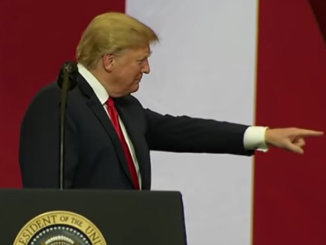
As of this writing, America’s National Debt sits at over $20.6 trillion — and climbing. To put that in a different light, when you woke up this morning as a citizen of the United States of America, your share of the debt was $63,120. Your share as a taxpayer is $170,436. And the deficit for 2017 was $666 billion.
If you’re anything like me, you get tired of the terribly bloated size of government– especially the federal government. At every turn, some government entity is finding some way to extract more money from us. And when I say “at every turn”, I’m not really exaggerating. Senator Rand Paul (R – KY) recently pointed out that there are at least 97 different federal taxes alone .
So, is it any wonder why some – not all – Americans were pretty happy when President Trump signed a bill to cut taxes by $1.5 trillion over ten years? By the way, as a side note, Senator Paul tried to get an amendment in the bill to increase that to $2.5 trillion, but it failed.
And isn’t it interesting that many Americans look at such a tax cut as a “gift”? Think of it this way… the government that takes our money by threat of force is promising not to take so much over the next ten years. And that’s considered a gift? That’s fascinating logic.
Let’s put it another way. If your neighbor raided your bank account year after year, but then decided one day to let you know that over the next ten years they’ll make sure not to take so much, are you going to shower them with expressions of gratitude? Of course not. In fact, they’d likely have been in jail after the first time they raided your bank account. But somehow the government is different, right?
As wonderful as tax cuts are, the American people must demand that Congress also hack away at its spending. Former Texas Congressman Ron Paul explained it best earlier this year:
“All federal spending, whether financed by taxes or by debt, forcibly removes resources from the private sector. Thus, all government spending is in essence a form of taxation. Therefore, cutting income and other taxes without cutting spending merely replaces one type of taxation with another. Instead of directly paying for big government via income taxes, deficit spending means citizens will be hit with an increase in the inflation tax. This tax, imposed on the people with the Federal Reserve’s monetization of debt, is the worst form of tax because it is both hidden and regressive.” (Emphasis Added)
The “inflation tax” is perhaps the least spoken of as a consequence of a bloated government that has no problem borrowing and spending against future generations. The results are both immediate and long term. But the problem is that the inflation tax is a hidden tax– thus the reason for it not being spoken of very often. Yet, to the person on fixed income, its effects are immediate as their dollars lose the buying power they once had. The effects on long terms investments can be damaging as well, as explained here.
In order to effectively begin reducing the size of government and its spending, there is no question that entitlements must be part of the discussion. Even President Barrack Obama has admitted that, “Medicare and Medicaid are the single biggest drivers of the federal deficit and the federal debt by a huge margin.”
House Speaker Paul Ryan indicated the need for entitlement reform lately , saying that Republicans would target them in 2018. But Senate Majority Leader Mitch McConnell says there’s no such plans .
I’ve heard it said many times that, “We get the government that we deserve.” In one context, I suppose this is true. There’s little doubt that the driving force of whether or not Congress eventually makes significant spending cuts will be whether the American people support it or not. But should we decide to maintain the status quo by spending money that we don’t have on the backs of future generations, we should at least admit that by doing so we’re saddling them with a government they didn’t ask for and one that they certainly don’t deserve.
There is no doubt that one of the best “gifts” this government – currently led by a Republican majority – could give would be to begin living within its means, and that requires they cut spending. Anything else is simply unsustainable and an endorsement of the status quo– to the detriment of generations to come.
Sources:
1. http://www.usdebtclock.org/
2. https://www.usgovernmentspending.com/federal_deficit_chart.html
3 . http://www.foxnews.com/opinion/2017/11/27/sen-rand-paul-heres-why-plan-to-vote-for-senate-tax-bill-and-my-colleagues-should-step-up.html
4 . https://www.nytimes.com/2017/12/22/us/politics/trump-tax-bill.html
5 . http://www.campaignforliberty.org/classic-ron-paul-cut-dont-reform-taxes
6 . https://www.investopedia.com/ask/answers/021615/how-does-inflation-affect-fixedincome-investments.asp
7. http://www.chicagotribune.com/news/nationworld/politics/ct-republican-welfare-cuts-20171206-story.html
8. http://nymag.com/daily/intelligencer/2017/12/mcconnell-says-no-to-ryans-dream-of-cutting-entitlements.html
9. http://reason.com/blog/2017/12/22/tax-reform-was-easy-spending-cuts-are-im 10. http://www.breitbart.com/big-government/2017/12/22/blue-state-blues-remains-tea-party-questions-answer/





